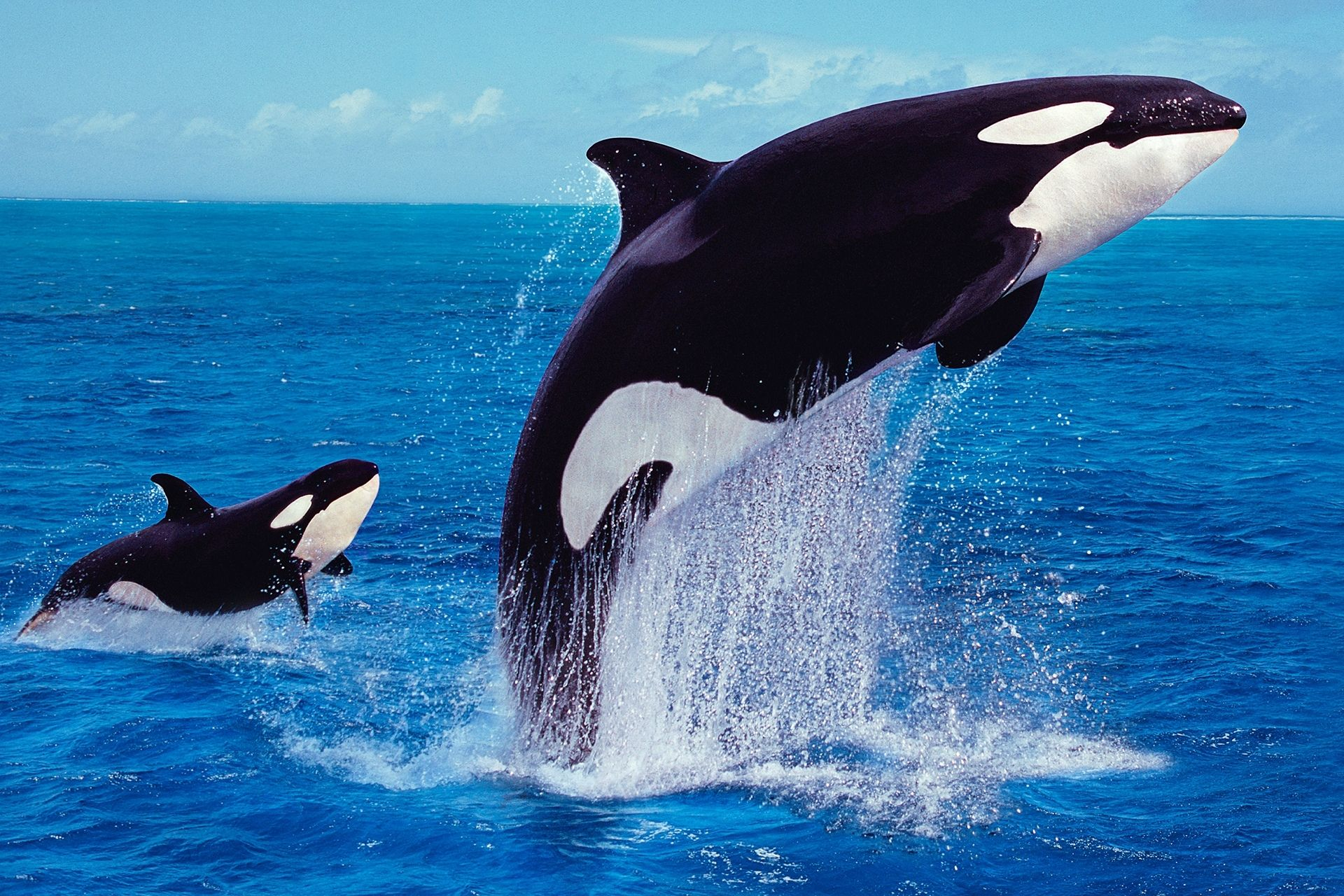Orcas, also known as killer whales, are one of the most fascinating and intelligent marine mammals that roam the world's oceans. They are apex predators, with only a few natural enemies, and have an impressive range and variety of hunting tactics. Here are some interesting facts about these magnificent creatures:
Appearance and Size: Orcas are easily recognizable by their distinctive black-and-white coloration, with a white patch on the chest and a white "eye-patch" behind the eye. They are the largest members of the dolphin family, with males reaching lengths of up to 30 feet and weighing over 10,000 pounds. Females are slightly smaller, reaching lengths of up to 25 feet and weighing up to 7,000 pounds.
Diet: Orcas are apex predators, which means that they are at the top of the food chain and have no natural predators. They are known for their varied diet, which includes fish, seals, sea lions, squid, and even other whales. They are known for their coordinated hunting strategies, where they work together in groups, or pods, to herd prey into a tight ball and then take turns diving down to grab a meal.
Intelligence and Communication: Orcas are highly intelligent creatures and have a complex social structure, living in family groups known as pods. They are known for their sophisticated communication skills, which include a wide range of vocalizations, such as whistles, clicks, and even songs. They also use body language, such as breaching, tail slapping, and spyhopping, to communicate with each other.
Migration and Range: Orcas are found in all of the world's oceans, from the Arctic to the Antarctic, and are known to migrate over vast distances in search of food. They have been observed traveling up to 100 miles a day and can dive to depths of up to 1,000 feet.
Conservation and Threats: While orcas are not currently endangered, they face a number of threats, including pollution, overfishing, and habitat loss. They have also been hunted in the past for their meat, oil, and other products, although most countries now have laws in place to protect them. In captivity, orcas have been the subject of controversy, with some arguing that they should not be kept in captivity for entertainment purposes.
Ecotourism and Research: Orcas are a popular attraction for ecotourists and are a major draw for whale watching tours. In addition, scientists study orcas to learn more about their behavior, biology, and ecology. They use a variety of techniques, such as satellite tagging, acoustic monitoring, and genetic analysis, to gather information about these fascinating creatures.
In conclusion, orcas are truly remarkable animals, with a complex social structure, a varied diet, and an impressive range of hunting tactics. They are highly intelligent and have a sophisticated communication system, making them one of the most fascinating marine mammals to study. While they face a number of threats in the wild, there are efforts underway to protect them and their habitats, and to study them for the benefit of both science and ecotourism.
